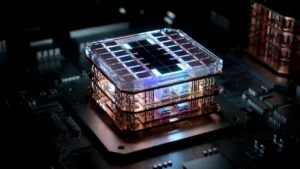Despite the rise of powerful laptops, tablets, and cloud-based computing, desktop PCs remain a crucial part of the tech landscape in 2025. Many predicted their decline, but desktops continue to offer unmatched performance, customization, and longevity. For gaming, professional workloads, or general productivity, desktops still provide advantages that portable devices can’t fully replace.
Unmatched Performance and Power
One of the biggest reasons desktop PCs remain relevant is their raw performance. High-end CPUs, dedicated GPUs, and superior cooling systems allow desktops to outperform even the most powerful laptops. Gamers, video editors, engineers, and developers rely on desktops for intensive tasks that require sustained processing power. Unlike laptops, desktops aren’t limited by thermal constraints, meaning they can push hardware to its full potential.
Customization and Upgradability
Unlike most laptops and mobile devices, desktops allow users to customize and upgrade their systems over time. Users can swap out CPUs, GPUs, RAM, and storage as needed, ensuring their machines stay up to date without requiring a complete replacement. This flexibility is especially valuable for gamers and professionals who want to keep pace with evolving hardware without constantly buying new devices.
Cost-Effectiveness and Longevity
Desktops offer better value for money compared to similarly specced laptops. A desktop with equivalent processing power, storage, and RAM typically costs less than a laptop due to the absence of compact, high-efficiency components. Additionally, because desktops are more straightforward to upgrade and repair, they tend to last longer than laptops, reducing the need for frequent replacements.
Superior Multitasking and Productivity
Desktops are the best choice for professionals relying on multiple monitors, powerful peripherals, and extensive connectivity options. Large displays, mechanical keyboards, and dedicated input devices contribute to a more efficient workflow. Content creators, programmers, and financial analysts benefit from desktops’ ability to handle multiple high-performance applications simultaneously without sacrificing speed or responsiveness.
Conclusion
Despite the growing popularity of laptops, tablets, and cloud computing, desktop PCs will remain highly relevant in 2025. Their superior performance, customization, cost-effectiveness, and productivity benefits ensure they will continue to be used in gaming, professional work, and high-performance computing. As technology evolves, desktops will adapt to serve users who demand power, flexibility, and long-term value.












